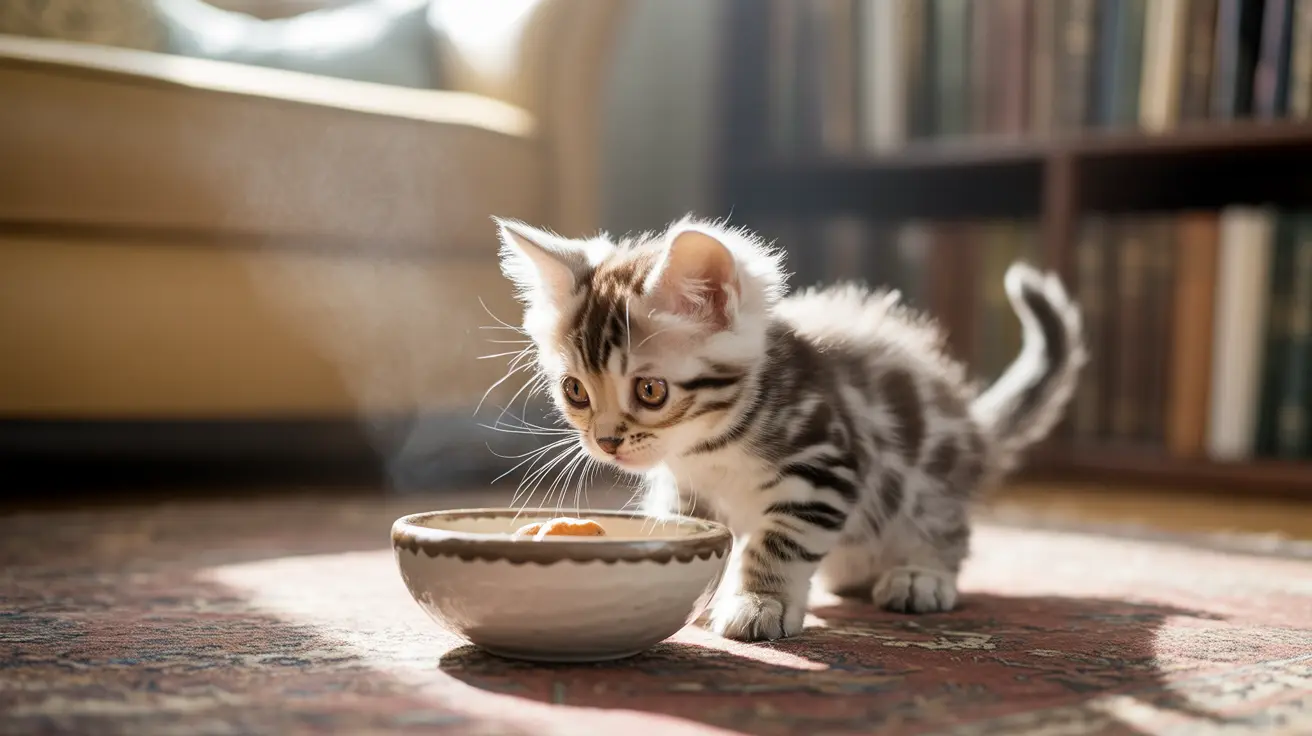Understanding Why Your New Kitten Won't Eat
Bringing home a new kitten is exciting, but it can quickly become concerning when your furry friend refuses to eat. This behavior, while worrying, is actually quite common in new kittens and can stem from various causes ranging from simple stress to more serious medical conditions.
As a kitten owner, it's crucial to understand that young cats are particularly vulnerable to health complications from not eating, as they need consistent nutrition for proper growth and development. Even 24 hours without food can be dangerous for a kitten, making it essential to identify and address the underlying cause quickly.
Common Reasons Your New Kitten Isn't Eating
Stress and Environmental Changes
The most common reason for a new kitten not eating is adjustment stress. Moving to a new home means encountering unfamiliar surroundings, people, and routines. This environmental shift can be overwhelming for a young cat, temporarily suppressing their appetite.
- Create a quiet, safe space for feeding
- Maintain consistent feeding times
- Keep their food bowl away from litter boxes and high-traffic areas
- Use familiar bedding or toys from their previous home
Medical Issues Affecting Appetite
Several health conditions can cause a loss of appetite in kittens:
- Upper respiratory infections
- Dental problems and teething pain
- Gastrointestinal parasites
- Viral infections
- Recent vaccinations
- Digestive system issues
Food-Related Factors
Sometimes, the issue lies with the food itself:
- Temperature (many kittens prefer warm food)
- Texture preferences (wet vs. dry food)
- Food freshness
- Bowl cleanliness
- Recent diet changes
Signs That Require Immediate Veterinary Attention
Watch for these red flags that indicate your kitten needs immediate medical care:
- Not eating for more than 12-24 hours
- Lethargy or weakness
- Vomiting or diarrhea
- Difficulty breathing
- Visible weight loss
- Yellowing of eyes or gums
- Constant crying or distress
How to Encourage Your Kitten to Eat
Try these proven strategies to stimulate your kitten's appetite:
- Warm wet food slightly to enhance aroma
- Offer various food textures and flavors
- Hand-feed small amounts
- Place food in a quiet, stress-free area
- Maintain consistent feeding schedules
- Clean food bowls daily
Frequently Asked Questions
Why is my new kitten not eating and how can I tell if it's serious?
If your kitten hasn't eaten for more than 12-24 hours, or shows signs of lethargy, vomiting, or breathing difficulties, it's serious. Other concerning signs include weight loss, weakness, or behavioral changes. Always consult a vet if you're unsure.
How can I help a new kitten who is refusing to eat because of stress or environment changes?
Create a quiet, safe feeding space, maintain consistent feeding schedules, and use familiar items from their previous home. Gradually introduce them to new spaces and try warming their food to enhance the aroma.
What medical issues commonly cause a kitten to lose its appetite?
Common medical causes include upper respiratory infections, dental problems, gastrointestinal parasites, viral infections, and vaccination reactions. Some kittens may also experience teething pain that affects their eating habits.
How do I transition my new kitten to solid food without them rejecting it?
Make the transition gradually over 7-10 days by mixing new food with their current food, slowly increasing the proportion of new food. Ensure the food is at an appropriate temperature and texture for your kitten's preference.
When should I take my new kitten to the vet for not eating?
Take your kitten to the vet if they haven't eaten for more than 12-24 hours, show signs of illness (lethargy, vomiting, diarrhea), or if you notice significant weight loss. Young kittens are particularly vulnerable to complications from not eating, so prompt medical attention is essential.
Conclusion
While it's natural to worry when your new kitten isn't eating, understanding the potential causes and knowing when to seek veterinary care can help ensure your kitten's health and well-being. Remember that early intervention is key, particularly with young kittens, as their small bodies can't go long without proper nutrition.






